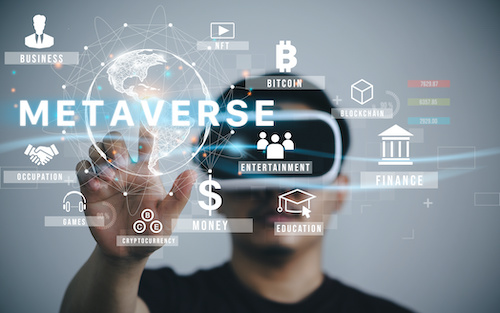
The word ‘metaverse’ has certainly been used a lot recently, specifically within conversations around the advancement of technologies and the ever-changing landscape of how we work and live. More often than not, it is usually connected to the gaming industry and does not tend to come up in conversations about education. However, the AI-powered virtual world is becoming increasingly appealing to content creators and educators as they recognize how it can be used to improve engagement and creativity and create personalized learning programs.
What is a predictive metaverse?
A predictive metaverse is a hypothetical concept that refers to an advanced form of a virtual world that is powered by AI and machine learning algorithms. In this scenario, the metaverse would be able to predict and anticipate the actions and behaviors of its users. It is essentially taking virtual learning to the next level.
This concept of the predictive metaverse is based on the idea that as virtual worlds become more sophisticated and realistic, they will also become more intelligent and able to analyze data in real time. The predictive metaverse would use this data to understand the preferences, behaviors, and intentions of its users, and then provide personalized recommendations, predictions, and feedback based on that understanding.
For example, in a predictive metaverse, an AI algorithm could predict the behavior of users in a virtual marketplace, such as what they are likely to buy, when they are likely to buy it, and how much they are willing to pay. This information could then be used to optimize the marketplace, improving the user experience and increasing sales.
















